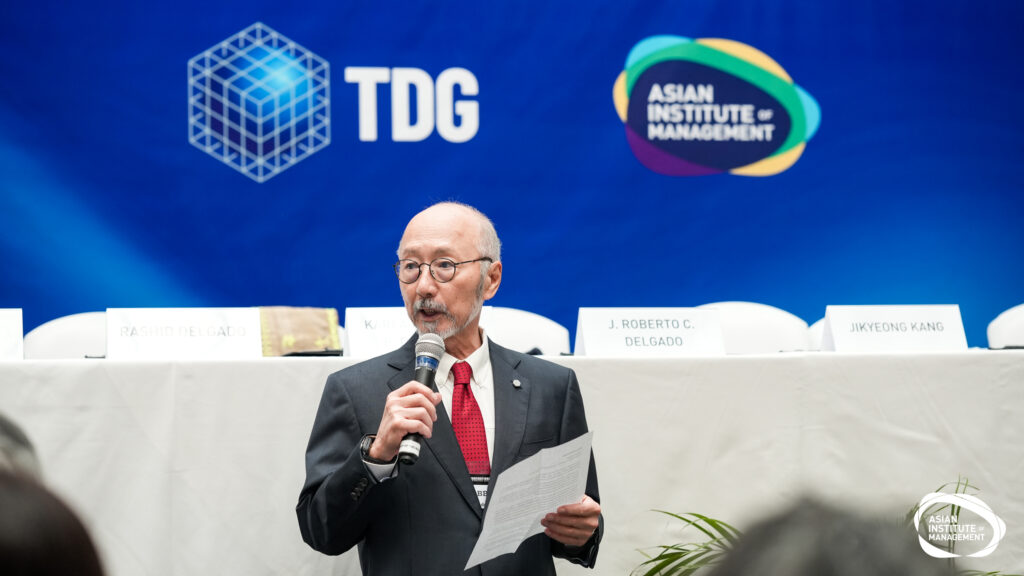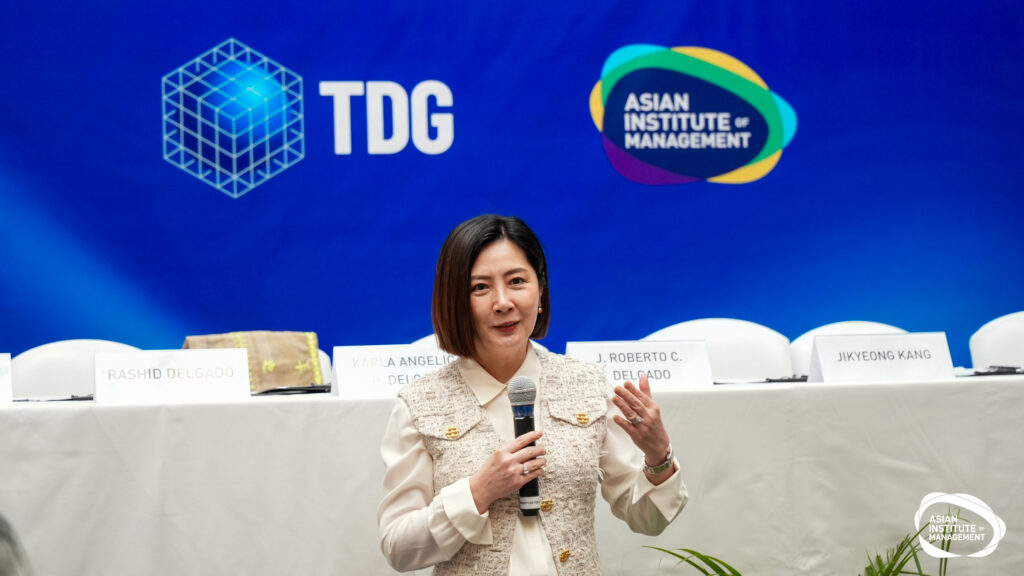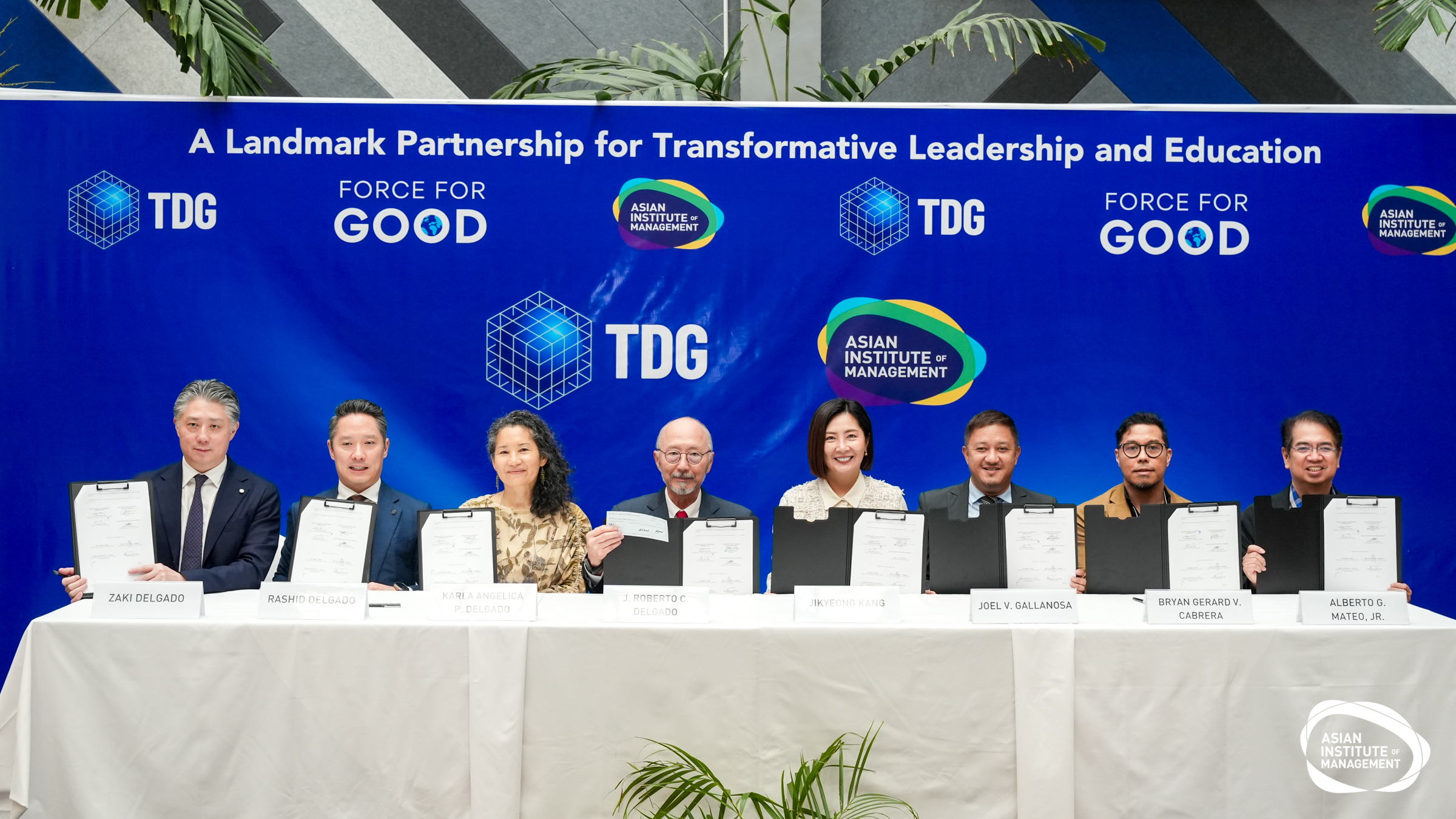AIM and Transnational Diversified Group Seal Partnership to Transform Learning and Leadership Spaces
The Asian Institute of Management (AIM) has announced one of its most significant philanthropic milestones this year through the generous contribution of the Transnational Diversified Group (TDG), which will enable the full renovation of the 3rd Floor West Wing. This timely investment marks an important step in advancing AIM’s mission to equip leaders with the skills, perspectives, and expertise necessary to shape the future of business and society.
The partnership comes at a moment of shared significance. In 2026, TDG celebrates its 50th anniversary, marking five decades of building a legacy as a Force for Good. As a diversified group operating in shipping, logistics, education, technology, travel, and sustainable enterprises, TDG has long invested in initiatives that strengthen industries, develop Filipino talent, and uplift communities. Its commitment extends deeply into sustainability and climate action, guided by TDG’s Force for Good framework—an impact philosophy anchored on four pillars: People (empowering employees and communities), Planet (driving environmental stewardship and climate action), Prosperity (supporting economic resilience and innovation), and Purpose (ensuring values-driven leadership and long-term positive impact).
As TDG enters this milestone year, its partnership with AIM reflects a shared commitment to nation-building and the development of future-ready leaders. AIM and TDG formalized this initiative through a Ceremonial Signing held on 9 December 2025 at the TDG Innovation.Hub (In.Hub) in Taguig City.
During the event, TDG was represented by Zaki Delgado (Group Co-Chief Executive Officer), Rashid Delgado (Group Co-Chief Executive Officer), Karla Angelica P. Delgado (Group Chief Sustainability Officer), J. Roberto C. Delgado (Founder and Group Chairman), Socorro Z. Niro (Treasurer and Group Chief Financial Officer), and members of TDG’s Board of Directors, underscoring the company’s full leadership support for this initiative.

Mr. Jose Roberto “Robbie” Delgado, Founder and Group Chairman of TDG, remarked: “Today is not simply about signing the deed of donation. It is about strengthening a vision that AIM and TDG both believe in deeply: that leadership, when anchored in integrity and purpose, can transform industries and uplift the communities they serve.”

At the heart of this partnership is the creation of a next-generation caseroom and learning hub at AIM. Designed as flexible, technology-enabled environments, the renewed spaces will support hybrid learning, real-time case discussions, simulations, and industry-led sessions that bring real-world challenges directly into the classroom. The transformed 3rd Floor West Wing will serve as a hub where students, faculty, and partners can explore new approaches to teaching and learning, collaborate across disciplines, and co-create solutions with the public and private sector.
AIM President and Dean, Dr. Jikyeong Kang, expressed deep appreciation for TDG’s commitment, “I think this partnership is a culmination of our desire to continue greatness, and also to explore new reasons to do things,” she explains. “Both our institutions are very much into —not just innovation, but also sustainability— and doing things with the purpose in mind,” she concludes during her speech, thanking TDG.

As TDG defines its next 50 years, this collaboration is a shared pledge to empower the leaders who will shape the next era of Philippine progress. And by joining forces, AIM and TDG affirm their belief that education, innovation, and purpose-driven leadership remain the country’s strongest pathways to a better future.


